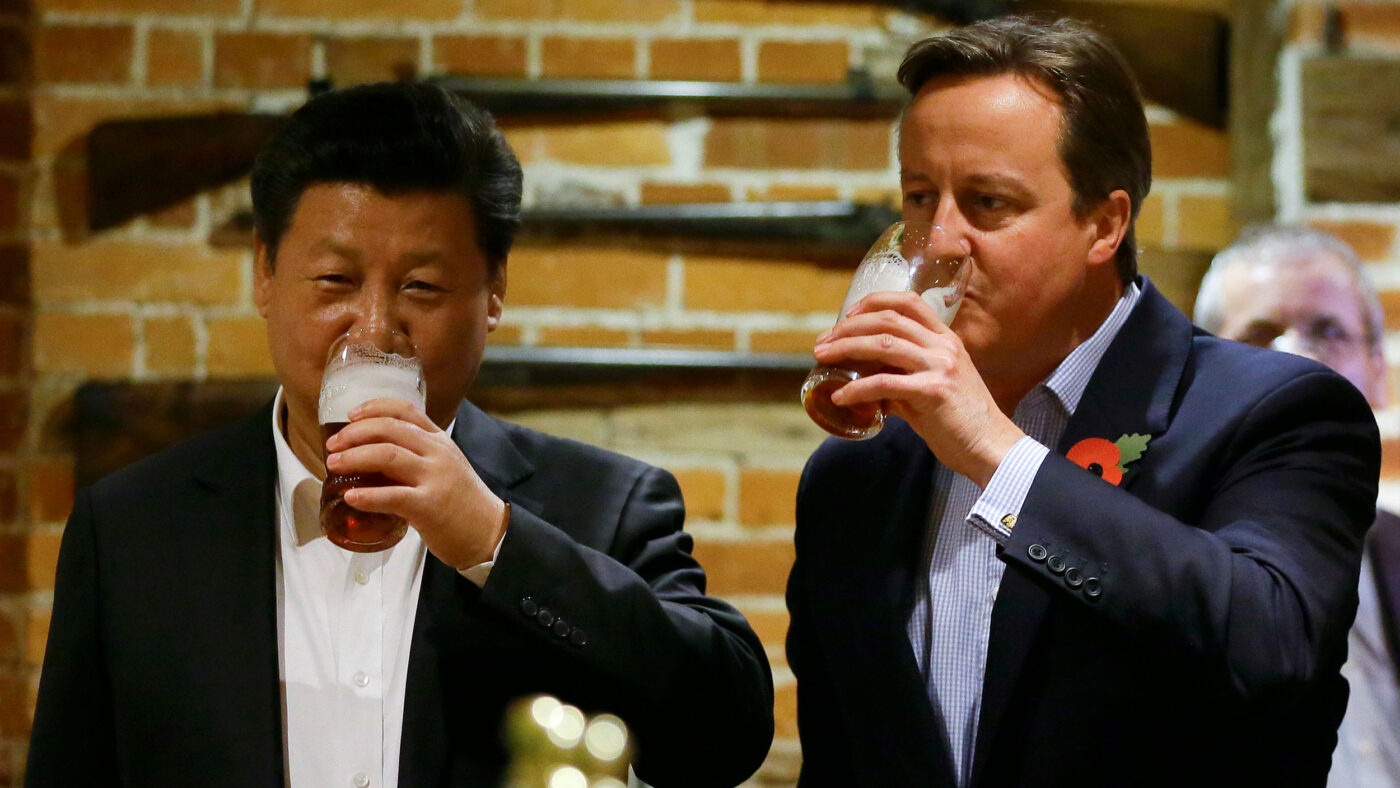When reflecting on Rishi Sunak, it’s not often that the word ‘magician’ springs to mind.
Yet on Monday morning, the Prime Minister pulled off one of the most impressive political conjuring tricks in living memory. With surprising deft, he plucked a David Cameron-shaped rabbit from the hat and simultaneously made controversial Home Secretary Suella Braverman disappear in a puff of smoke.
Committed political historians will know that Cameron is actually the fourth former British Prime Minister to return as Foreign Secretary, following in the footsteps of Alec Douglas-Home, Arthur Balfour, and John Russell.
Despite the comparisons made with fellow Old Etonian Douglas-Home, commentators might do well to look a little further back to the much-maligned Balfour – as it happens, also an Old Etonian.
Like Balfour, Cameron spent much of his premiership attempting to smooth relations with Europe while promoting Britain’s interests abroad. Like Balfour, Cameron resigned as Prime Minister after failing to reconcile a dispute within his Government between two factions with divergent views on what Britain’s trade policy ought to be. Like Balfour, Cameron’s time as Foreign Secretary coincides with a major turning point in the history of Jewish nationhood.
However, historical allegory can only take us so far; the biggest problems that Cameron will face belong firmly to the 21st century.
As Prime Minister, Cameron positioned the UK as a business-minded bridge between Europe, the United States, and the developing world, but the world has changed since 2016. An acrimonious divorce with Brussels, and rising protectionism across the Atlantic, have left Britain searching for a place in the world. Ties in the Gulf that Cameron worked hard to maintain have been neglected in recent years, with concerns over human rights trumping hard-nosed business interests.
More consequentially, Britain’s relationship with China has evolved beyond recognition since Cameron infamously whistled his way out of Number 10. Alongside noted podcast host George Osborne, he led active efforts to attract Chinese investment. In 2013, he came under fire for handing out contracts to Chinese telecom giants Huawei. In 2015, he hosted Chinese premier Xi Jinping on an official state visit, which paired a new £40bn business deal with a pint of ale at the local pub. In 2021, he was involved in efforts to set up a new $1bn UK-China investment fund.
Since Cameron’s self-described ‘golden age’, we’ve seen the imposition of a new national security law on Hong Kong, and rising tensions in the Taiwan Strait. Increasingly, the UK is positioning itself as part of a Sinosceptic bulwark in the Indo-Pacific, joining hands with Australia, Japan, and India to oppose Beijing’s growing influence. The days of soliciting investment from China’s sovereign wealth fund are long gone.
Successive Foreign Secretaries have struggled to walk the rhetorical tightrope between firm opposition and outright aggression. His immediate predecessor, James Cleverly, visited Beijing in August, the first Foreign Secretary to do so in five years, a move which met with significant criticism from the Conservative backbenches.
Whether or not Cameron has woken up to these new realities remains to be seen. If not, he can soon expect a rude awakening from China hawks like Iain Duncan Smith and Alicia Kearns, who are unlikely to be persuaded by the business case for thawing relations with President Xi.
Despite all of these challenges, there’s plenty of cause for optimism – for one, it’s unlikely that Cameron’s tenure will see Britain capitulate to demands for restitution and reparations. In 2010, he insisted that the Koh-i-Noor diamond would be ‘staying put’. In 2015, he explicitly ruled out the idea of reparations for slavery, urging Caribbean states to ‘move on’ from the past.
There’s also the fact that it was under Cameron’s government that British troops began to train their Ukrainian counterparts. Given the events of February 2022, this decision has proven to be exceptionally far-sighted.
As a former Prime Minister, Cameron will enjoy a level of presence and polish that few Foreign Secretaries in recent memory have been able to muster. If he is to make a success of the role, he will need to put those qualities to good use – this is not an easy time to be representing Britain on the world stage.
He will need to delicately manage our relationships with India and the Gulf, while building bridges with new post-Brexit partners in Africa and the Indo-Pacific. At the same time, he must walk a difficult tightrope with our European neighbours and prepare the country for the possibility of a Trump presidency.
Most importantly, he must unpick the knot of Britain’s inconsistent China policy. Like it or not, his success in the post may be measured by his management of the burgeoning Indo-Pacific tilt. For a man who spent so much of his tenure coveting Beijing’s vast capital reserves, this could prove challenging.
Yet if we look once again to history, perhaps Call Me Dave will follow in the footsteps of John Russell who, having led a government indifferent to Italian unification in the 1840s, used his tenure as Foreign Secretary in the 1850s to reverse course. If Cameron can re-emerge, he can surely re-orient.
Click here to subscribe to our daily briefing – the best pieces from CapX and across the web.
CapX depends on the generosity of its readers. If you value what we do, please consider making a donation.


